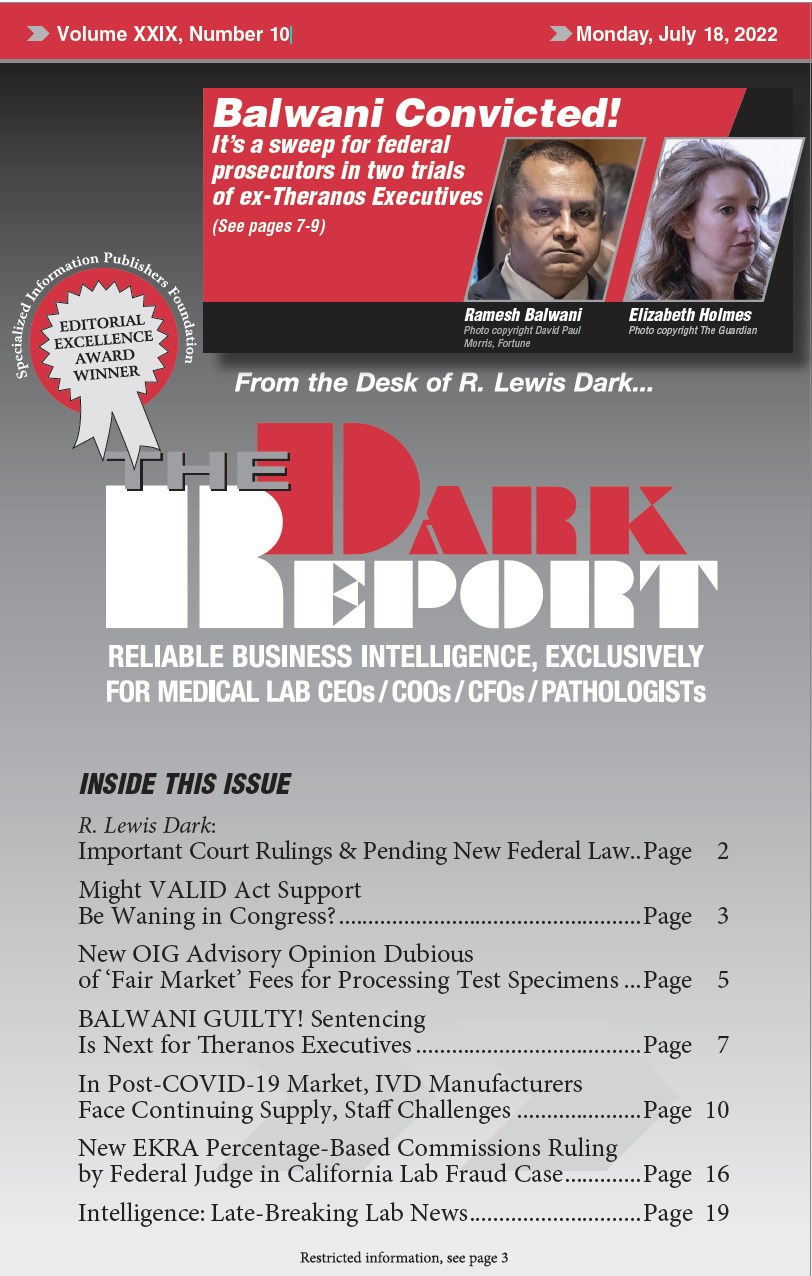This is an excerpt of an 833-word article in the July 18, 2022 issue of THE DARK REPORT. The full article is available to members of The Dark Intelligence Group. CEO SUMMARY: Just weeks ago, events seemed to indicate that the Verifying Accurate Leading-edge IVCT Development (VALID) Act including an LDT regulation bill was …
Might LDT Regulation Bill Support Be Waning in Congress? Read More »
To access this post, you must purchase The Dark Report.


